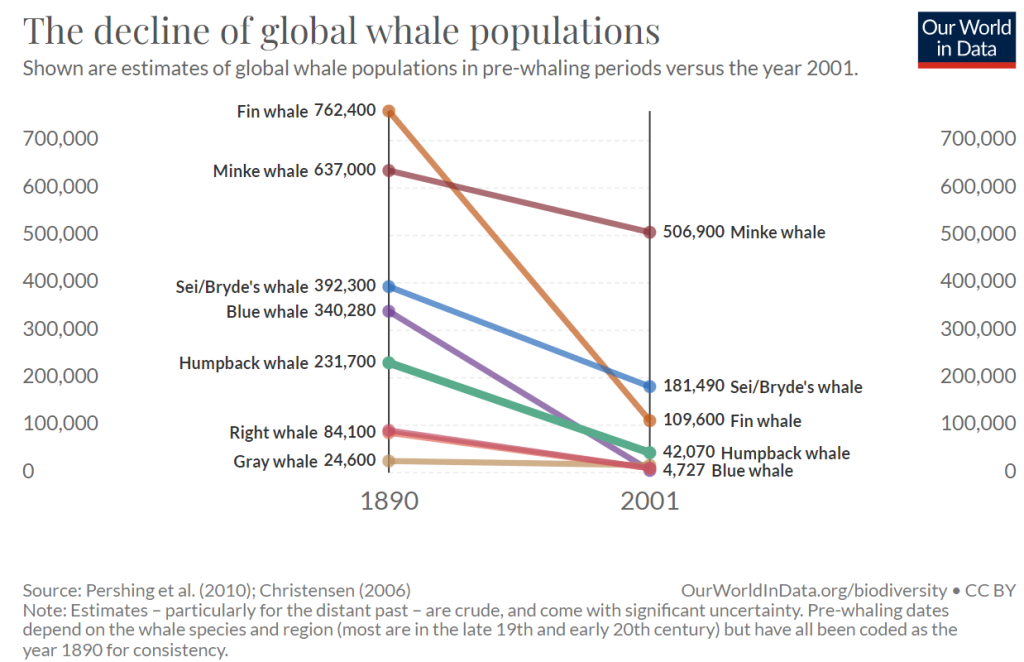A report has calculated that the reintroduction of 9 species would do so much benefit to the ecosystems that they are found in, that these reintroductions would help us to keep global warming to 1.5° C.
While some of these would require human adaption, many would have benefits far beyond climate change.
These species are
- African forest elephants
- American Bison
- fish
- Gray wolves
- Musk oxen
- Sea otters
- Sharks
- Whales
- Wildebeast
Wildebeest are essential to allow the Serengeti to become a carbon sink. They eat the grass (which has absorbed the carbon) and return it to the soil in their dung. In the early 1900s their numbers crashed, and this turned the Serengeti into a carbon source. This is also partly due to the fact that without their continual grazing, fires are more common. American bison do something similar in the USA.
African forest elephants are essential for both seed dispersal and clearing creation amongst many other benefits. Without them, the Congo rainforest can quickly turn into a carbon source rather than sink.
Gray wolves are essential in many parts of the world, to keep herbivore populations under control, Without them, in places like the UK, growth of the woodlands are incredibly difficult or impossible, as deer eat the young trees to death. When wolves returned to Yellowstone, the number various trees increased, along with a great increase in beaver populations. While I cannot find an estimate of the extra carbon stored, it is likely to be a substantial increase likely over 100%.
Whales have been shown to be essential carbon sinks for the oceans, with each whale sequestering as much as 33 tonnes or more.

Here is a chart which shows the decline of whales over the whaling period (not starting at the very beginning but a better estimate for now. For these 7 species there was 2.5 million members at the start of the period, and 847,000 now. With a current estimate of around 1.5 million whales in the wild now, it is reasonable to assume a total whale population pre-whaling of around 5 million. This means that for an average lifespan of around 50 years, we are missing 330 million tonnes of carbon caught each century. Now while this is relatively small compared to the insane quantities that we are currently emitting as a race, it is large in the context of the carbon cycle of the oceans. This is also only direct emissions, the whales cause all sorts of other carbon sinks, like fertilizing various seaweeds and other, which absorb far more carbon.
Sharks are essential, to allow the carbon sinks on the coast of the world (sea grass meadows and kelp forests) to survive and thrive. They absorb huge quantities of carbon. Sea otters are also highly important for similar reasons.
Fish also excrete as much as 1.6 billion tonnes of carbon, which can lock this carbon away long-term.
All of this is to say, it is not good enough to simply leave areas to act as carbon sinks, the animals which live there are also essential in making sure that the world wild places are able to help us fight climate change.
